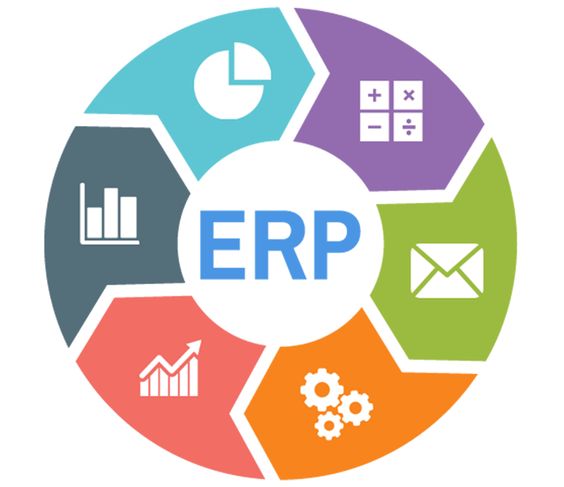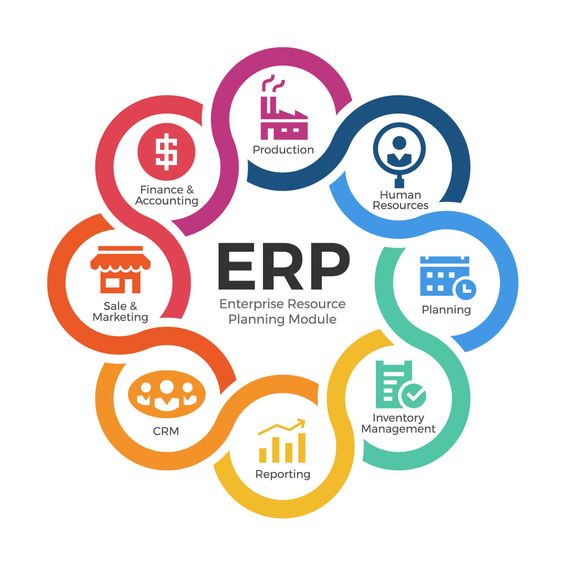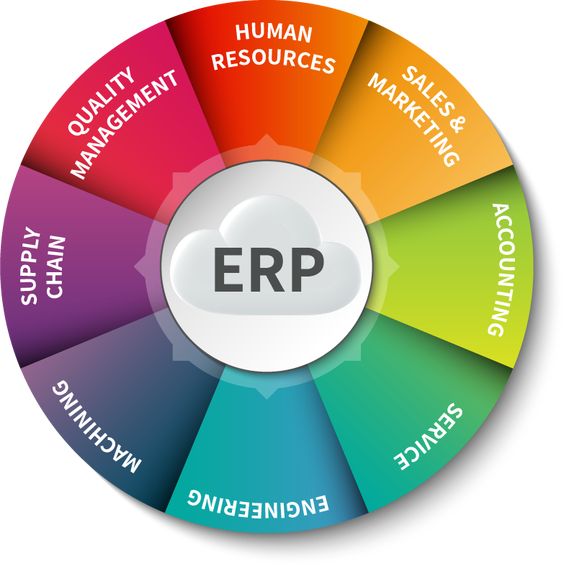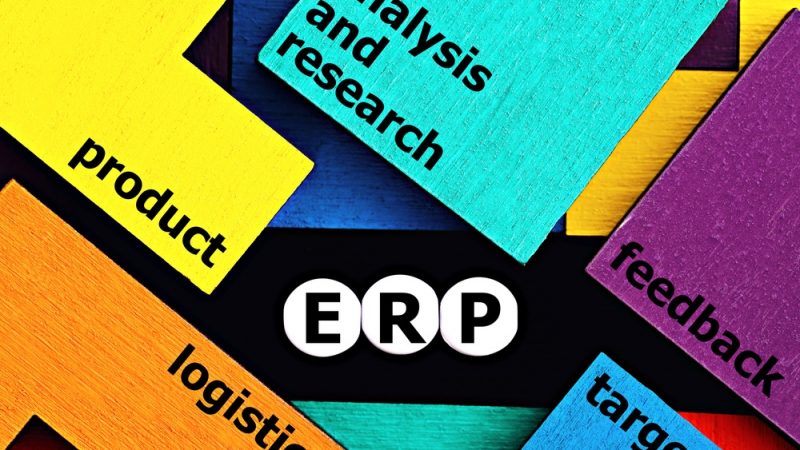Benefits of ERP Software for the Textile Manufacturing Sector
A company must synchronize its operations, cut the fat from its budgets, and continuously gather insights from its data if it wants to succeed in the highly competitive and globally integrated textiles sector. It’s crucial to use the greatest tools available if you want to hit these challenging targets.
The top industrial ERP software packages available today provide the answers that experts require. These cutting-edge software solutions offer a unified platform for all of a modern company’s most essential operations, such as:
- Manufacturing materials and processes
- Inventory
- Distribution and supply chain
- Purchasing
- Accounts payable and receivable
- Human resources
It makes sense that these goods, which focus on broad-spectrum solutions, also have a variety of advantages. How does ERP software integrate all of these features to increase a company’s capacity for innovation and competition? Here are 10 key characteristics of effective ERP systems that professionals in the textile business find essential.
An enhanced supply chain management system
Given that textile supply chains frequently traverse several international borders and that transportation prices are rising, textile manufacturers must find ways to save costs throughout their supply chain without compromising quality. Particularly for companies with global concerns, ERP software is useful for streamlining, monitoring, and managing supply chains.
Coordination of various moving elements, including manufacturing, distribution networks, suppliers, and more, is essential for achieving supply chain efficiency, and ERP software excels at this task. The majority of the software includes features for demand forecasting that let businesses prepare ahead of time and prevent delays by coordinating the movement of resources and labor between processes and departments. Additionally, logistics and distribution staff may quickly access documents like bills of lading from a central database provided by textile ERP software, improving operational effectiveness and lowering the risk of errors.
Improved Manufacturing Quality and Efficiency
For long-term success in a sector that develops as swiftly as textiles, well-coordinated manufacturing is essential. An agile and integrated reaction is necessary to address a variety of typical problems, including changing demand, last-minute supply chain glitches, and, of course, the requirement to remain competitive. Instead of only addressing problems when they arise, it’s critical to make these improvements in advance.
Businesses may develop and improve their manufacturing processes with the help of manufacturing ERP software. Resources may be used more effectively with the use of materials management tools, labor and facility management solutions that cut down on downtime in manufacturing facilities, and quality assurance modules that assist producers in upholding high standards.
ERP provides textile businesses with a variety of fantastic ways to do more with less, seize opportunities and even create their own ones.
Lower Initial Costs
ERP software from earlier generations has a reputation for steep upfront costs and protracted, difficult deployment processes. The next generation of ERP products, however, is the most accessible and straightforward to implement yet thanks to lessons the industry has learned from its growing pains.
This has been made possible in great part by the development of cloud-based ERP software. Cloud deployments, which typically take only a few months and put more of the software online at once to allow greater productivity, have replaced time-consuming, year-long on-premises ERP system setups. Additionally, the move to cloud subscription models has lessened the sometimes intimidating costs of buying a new ERP system by enabling companies to treat the software as an operational expense rather than a capital outlay.
Easier Returns
Returns can be all too common in the textile industry, especially in the retail sector for fashion clothes. Particularly during the holidays, B2C apparel businesses need to be prepared to handle a regular stream of returns, which can be a difficult effort for systems that aren’t up to the task. Furthermore, customers care a lot about how companies manage returns. According to a poll of 20.8 million consumers who shop for garments online, a simple and straightforward returns policy was the single most crucial deciding factor in where they spent their money.
ERP systems for textile manufacturing simplify returns by offering a consolidated database for return merchandise agreements. Through the integrated tool suites of ERP systems, return policy conditions, shipping, package tracking, and account credits are all readily controlled. Businesses that are adept at managing returns through their ERP systems have a significant edge over rivals that may still be hampered by fragmented infrastructure and variable performance.
The CRM modules that are typically included with ERP systems can be quite useful for tracking and handling returns. Additionally, they provide excellent chances to strengthen connections through open returns processing and diligent follow-up. This can involve giving consumers who were dissatisfied with the products discounts and discovering their preferences to better personalize their recommendations.
Integration of Single-Platform Data
For today’s business professionals, having crucial data dispersed across several platforms is a regular concern. Finding all the essential information can be challenging enough; imagine trying to combine it into a structure that is universally accepted and useful. Because of this, many manufacturers have discovered that employing an ERP system to combine their most crucial data into a single platform is beneficial.
ERP systems also make it simple to manage the information that employees have access to. Role-based permissions give management the ability to design sophisticated permissions lists that restrict access to the appropriate personnel, preserving the security of information and safeguarding business secrets.
Scalable Results
It will depend on their capacity to scale swiftly for many organizations and whether they can seize some of their most crucial opportunities. The biggest growth opportunities for a company frequently entail peaks in demand, entering new markets, bringing on new hires quickly, and developing new products—sometimes all at once. Because of this, purchasing ERP software can be a wise investment in a company’s ability to grow.
Businesses that rely on a patchwork of programs and spreadsheets are less equipped to handle the difficulties of scalability. Interdepartmental communication is more difficult, data may not always be available when needed, and manual inputs may not be accurate.
On the other hand, ERP systems for textile manufacturing are designed for scalable performance. Businesses are able to address growth-related difficulties holistically and create specific plans for sustaining growth and grabbing opportunities thanks to their integrated systems. The majority of ERP systems also offer the ability to quickly add more users and licenses as needed.
Strengthened Customer Relations
The ability of ERP systems to track and manage client interactions is another area in which they shine. Although a client is unlikely to ever notice the improvements on the back end that an ERP system contributes to, they will notice the changes on the front end, such as orders that fill and ship more quickly, fewer errors, and better shipment tracking.
For organizations to track and manage their interactions with clients, a decent ERP system also offers a customer relationship management (CRM) module. The CRM capabilities of an ERP solution, such as customer history tracking and sales data, can be useful to both B2B and B2C companies. With the aid of these technologies, a company can quickly pinpoint the needs, desires, and pain areas of its customers, enhancing customer service and providing sales and support staff with the information they require to properly manage the relationship.
Improved Inventory Control
Inventory management can be particularly difficult in a commercial environment since warehouses are frequently dispersed across a nation or the world. The basic fact is that any inventory management system that relies on manual inputs is less effective and more prone to errors. By offering powerful automation features for managing a company’s inventory, ERP software overcomes these problems.
Almost all significant inventory tasks, including creating pick lists, automatically syncing inventory, and keeping track of shortages and surpluses, may be automated using ERP systems. The majority are simple to link with barcode scanning systems that are offered for sale, enabling staff members to precisely record picks with a single scanner click. Additionally, they are simple to configure for automatic notifications to advise staff of important product shortages and other pressing issues.
Superior Protection
Another typical issue for companies of all sizes is security, another area where ERP systems excel. By utilizing the appropriate ERP system, businesses can more successfully handle internal and external security concerns.
Hackers and other cybercriminals can easily infiltrate a decentralized system with a large number of software items and password access points. Because their data is stored on centralized servers with few access points, ERP systems are more difficult for hackers to penetrate. ERP solutions that are cloud-based enhance this even further by doing a large portion of the security-related work themselves. Reputable cloud-based ERP providers store their clients’ data on multitenant servers that are tightly guarded, encrypted, and equipped with cutting-edge security technology that would be prohibitively expensive for many businesses.
Additionally, ERP systems offer alternatives for enhancing internal security. The capability of many ERP systems to track a user’s “digital footprints” is an important feature. To investigate potential theft or other wrongdoing, managers might enable these capabilities to track their employees’ actions within the system.
Flexibility across channels
Any company, especially B2C retail businesses, that wishes to succeed in the current economic climate must have an omnichannel strategy. The emerging standard of omnichannel retail trade includes selling through internet merchants, social media, physical storefronts, and more. This means that for the system to give responsive performance and a wonderful client experience, every component must function properly.
A business will be better equipped to handle the challenges of omnichannel commerce with a well-implemented ERP solution. Today’s ERP software offers a wide range of choices to build a seamless omnichannel flow, from handling compliance needs across channels to automatically changing inventory to offering a data window into another channel to enable communication between teams. Coordination and accessibility are a business’s secret weapons for keeping up with the “what you want when you want it” paradigm of commerce that is becoming more and more prevalent.
Of course, using ERP software won’t guarantee success. It still needs shrewd business principles, the capacity for change and adaptation, and possibly a little bit of luck. But the main advantage of ERP software is that it enables firms to put everything in place.
Textile professionals should be aware of two things: first, that selecting an ERP software system is undoubtedly a choice that shouldn’t be made lightly; and second, that the knowledge needed to make the proper decision is readily available.






